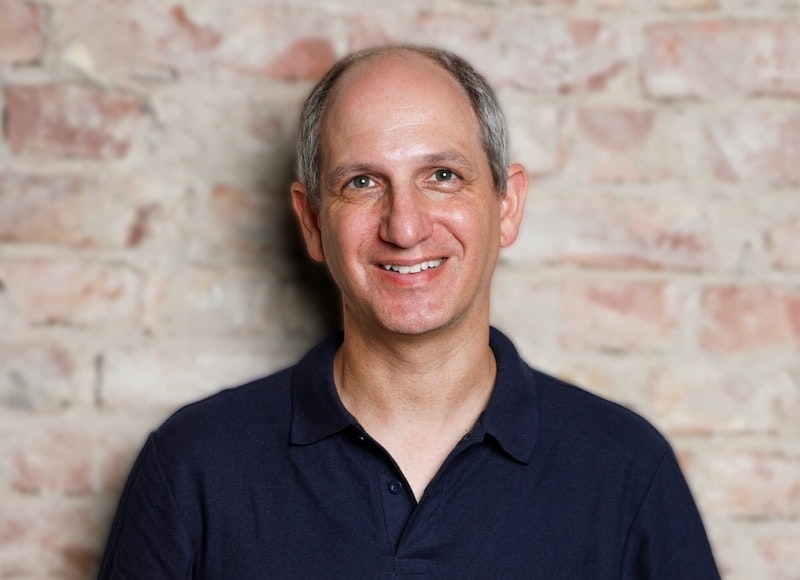Few topics divide the climate tech world like hydrogen. Some tout it as a key solution to decarbonising heavy industry and transport, while critics slam it as a Trojan horse sent by the fossil fuel industry.
Although the use of hydrogen doesn’t create any emissions, its production can. Roughly a dozen European startups are working on ways to make hydrogen production cleaner and cheaper.
Funding for European hydrogen startups hit a high last year, with $1.7bn invested — up from $641m in 2021, according to Dealroom. But things aren’t looking quite as good this year — only $309m has been invested so far.
So, which hydrogen startups could reignite European VC interest? Sifted spoke to investors from Extantia Capital, Emerald and Aster to find out which hydrogen startups they have their eyes on. The only catch was that they couldn’t mention portfolio companies.
Yair Reem, partner at Extantia Capital
Extantia Capital is a climate-first VC investing in seed and Series A. It mainly targets European companies, including the UK, Switzerland, and Israel, but occasionally invests globally.

Elcogen
Tallinn-headquartered Elcogen develops and manufactures solid oxide electrolyser cells (SOEC), which are used to produce green hydrogen, and solid oxide fuel cells (SOFC), which convert hydrogen into electricity.
Elcogen's technology improves the efficiency rates of standard solid oxide (SOC) and works at lower temperatures, making it cheaper and long lasting. Its reversible system means that it can generate power from fuel or fuel from power, depending on demand. It can also be used with different fuels like biofuel and gas, contributing to greater cost-effectiveness.
Battolyser Systems
Battolyser Systems, based in the Netherlands, has developed the world's first integrated battery electrolyser system, which is a system that contains both an electrolyser to catalyse the hydrogen reaction and a battery to store and supply power.
The technology is designed to be flexible and react to volatile energy markets, generating power, storing it and reusing it when the time is right.
CibusCell
CibusCell is a German startup developing a SaaS platform for hydrogen producers and providers. It combines data from sensors, weather, electricity prices, demand and supply to help users identify production inefficiencies and enhance business decisions.
Christoph Frei, partner at Emerald
Emerald invests globally in early to growth-stage cleantech companies across all industrial sectors, including energy, packaging, water, industrial IT, food and mobility.

Atmonia
Atmonia is an early-stage startup from Iceland. It is developing a nitrogen electrolyser to directly produce ammonia (NH3) using only air, water and electricity. That ammonia is much more energy-efficient to transport than hydrogen and then can be decomposed into hydrogen and nitrogen again when it reaches its destination. Typically, ammonia production creates a high volume of emissions, but Atmonia’s tech creates a carbon-free alternative.
EH Group
EH Group Engineering is a Swiss startup that produces compact and lightweight hydrogen fuel cells for use in heavy-duty trucks, mining, maritime industry and aviation, where weight and volume reduction are key criteria.
Convion
Convion is a Finnish hydrogen fuel cell developer that produces solid oxide fuel cell (SOFC) systems and electrolysers based on solid oxide (SOE) tech for distributed heat and power generation. Its systems are continuously operating, modular power generators which can be set up close to where the energy is consumed, improving energy efficiency and resilience.
Fabio Lancellotti, partner at Aster
Aster is a climate tech VC specialising in hard-to-abate sectors. It mostly invests in early-stage European startups.

Green Hydrogen Tech
Green Hydrogen Tech offers an alternative process for the production of climate-neutral hydrogen which uses non-recyclable waste. Its reactors heat plastic, wood and sewage waste to produce a gas which is then purified into hydrogen. Green Hydrogen Tech’s reactors can be set up without elaborate infrastructure, allowing industrial companies, utilities and businesses to produce hydrogen themselves.
Its process is cheaper than producing green hydrogen via the technique of electrolysis, due to the negative costs associated with burning waste and the smaller amount of energy required to burn it, according to the company.
Its novel approach solves the problem of plastic waste and sewage treatment and returns valuable green hydrogen as a byproduct.
HSL Technologies (formerly HySiLabs)
HSL Technologies, based in France, is developing hydrogen transportation and storage solutions. Typically, hydrogen has to be transported at a high pressure and low temperature, making transportation complex and expensive. HSL’s process traps hydrogen in a silicon-based liquid, so it can be transported at ambient pressure and temperature — this lowers costs and improves safety.
It's also patented a second process to release the hydrogen from the liquid so that it can be used by the final user i.e. in an engine or industrial process. HSL Technologies was also mentioned by Yair Reem from Extantia Capital as a hydrogen startup to watch.
VisionTech
VisionTech was founded on the idea that sustainable transportation cannot rely 100% on green electricity. So the company is working on an alternative combustion technology that uses hydrogen to power vehicle engines the same way diesel does today.
The company believes battery vehicles will dominate the transportation market in the future, but for some categories of vehicle — heavy-duty and long-distance vehicles — other powering solutions may be more relevant. VisionTech aims to target these needs by decarbonising mobility without dramatically changing the traditional combustion engine, meaning faster implementation of hydrogen at lower costs.
Spark Cleantech
Spark is pioneering a new way to produce hydrogen called ‘methane plasmalysis,’ through which methane (CH4) is converted into hydrogen and a solid carbon byproduct, instead of the carbon being admitted into the atmosphere. This process uses 4x less energy than electrolysis, according to the company, making it a cheaper and greener way to produce hydrogen.


